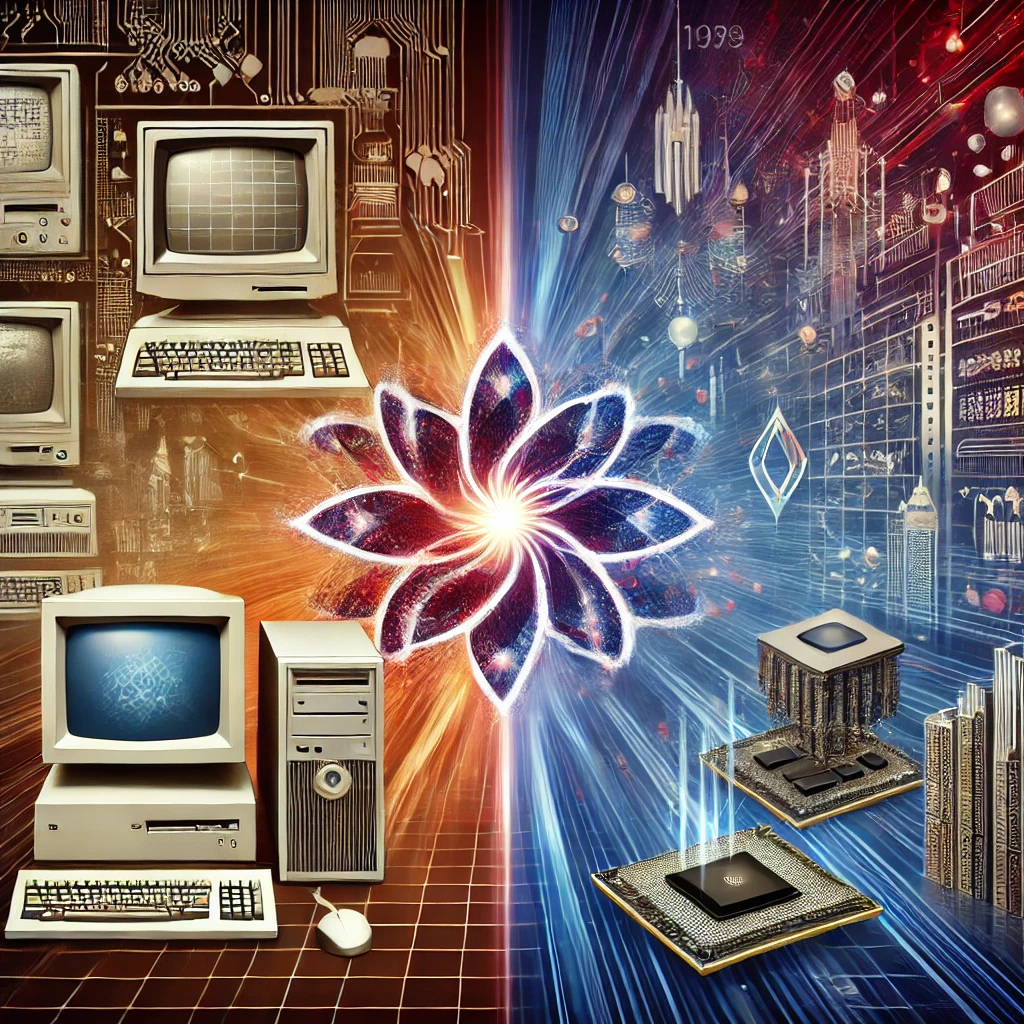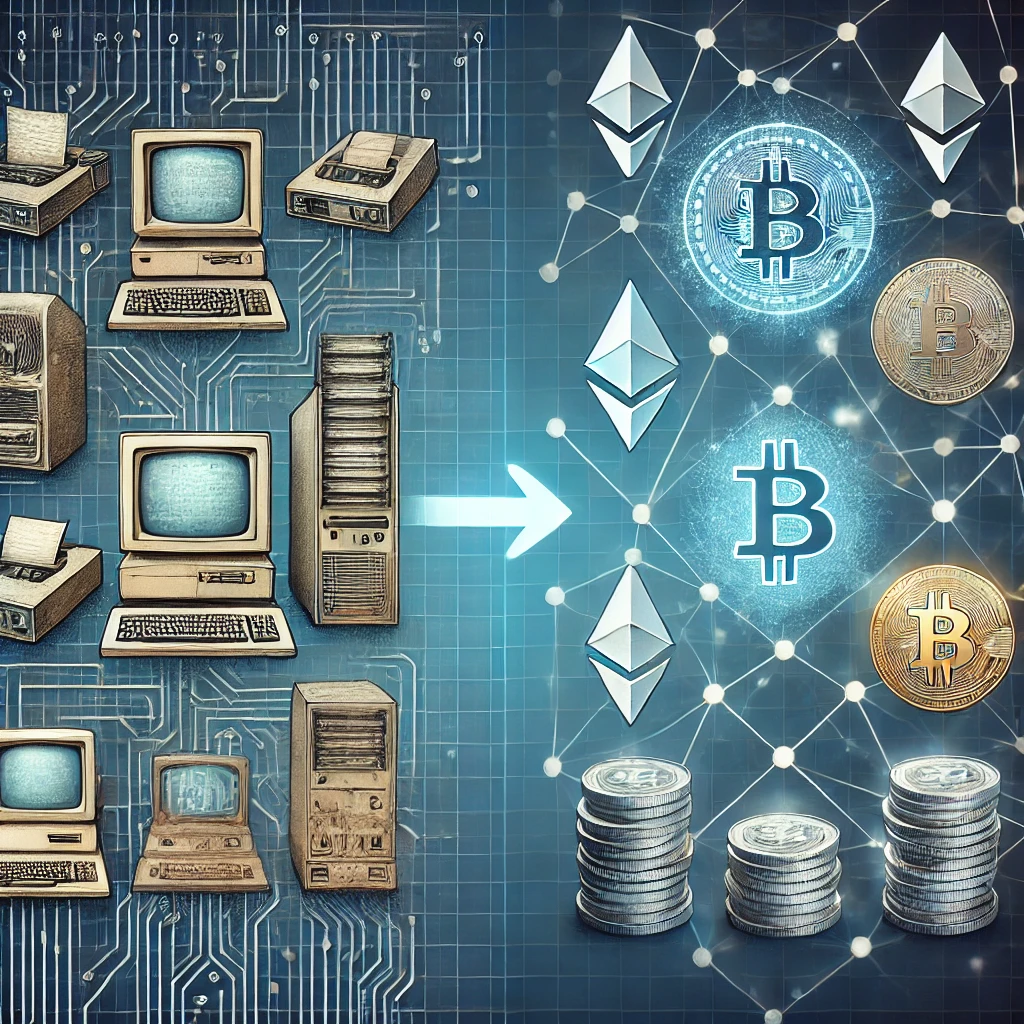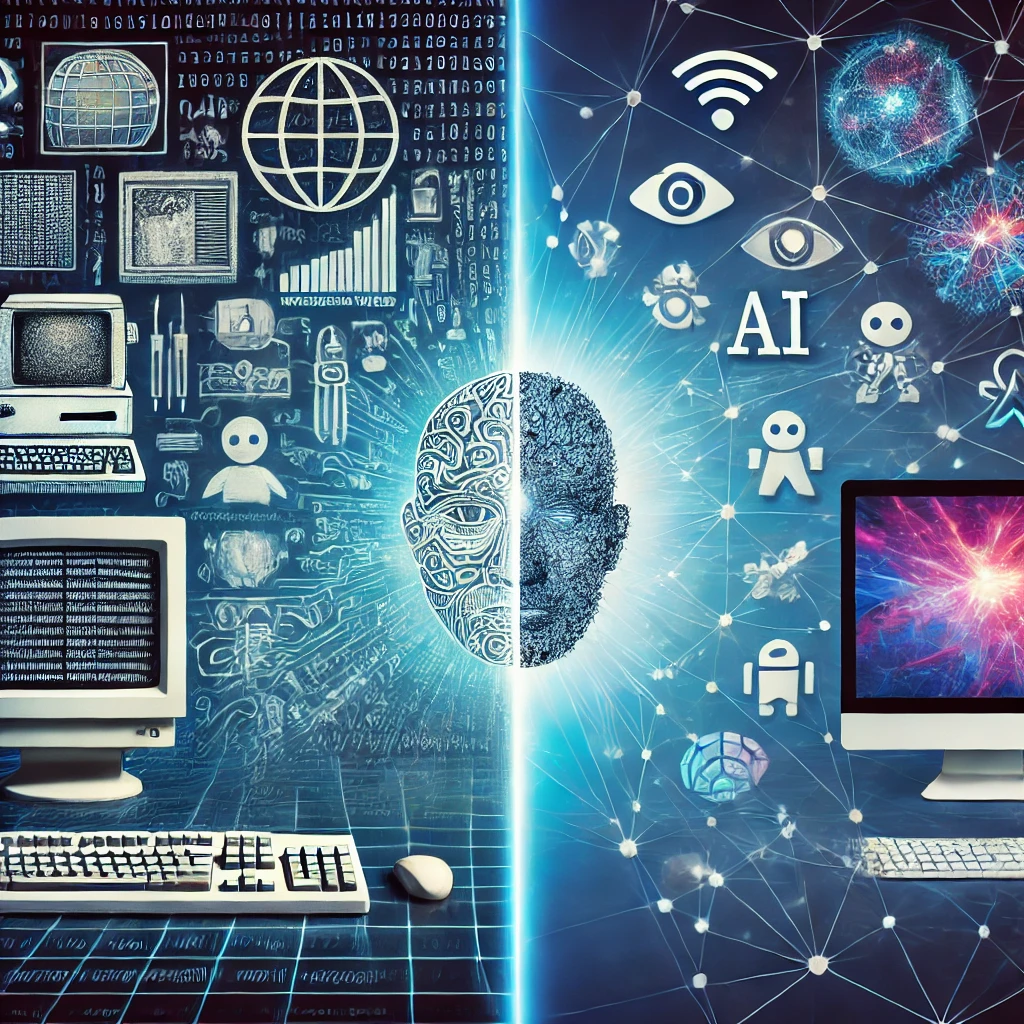From Personal Computers to Quantum Computing: The Leap in Computing Power

The history of computing has been marked by extraordinary leaps in technology, each bringing new levels of efficiency and capability. The journey began in the 1980s with the rise of personal computers, which revolutionized the way people worked, communicated, and created. Today, we stand on the brink of another monumental shift—quantum computing. This new frontier has the potential to tackle complex problems that classical computers, even the most advanced supercomputers, could never solve.
In the 1980s, personal computers (PCs) represented a significant leap in computing power for individuals. These early machines, such as the IBM PC and the Apple Macintosh, brought computing out of specialized labs and into homes and offices. The ability to perform basic calculations, run software applications, and store data on a personal device changed industries from finance to education. For the first time, regular people could use computers for word processing, spreadsheets, and other tasks that previously required large, centralized mainframes.
As computing power improved, industries adapted to new possibilities. The rise of the internet in the 1990s, paired with increasingly powerful PCs, accelerated this transformation. Businesses could now automate more processes, connect with global markets, and develop complex software applications. The combination of personal computing and networked systems allowed for innovations like e-commerce, social media, and cloud computing, forever changing the digital landscape.
Fast forward to today, and we are witnessing another major leap—quantum computing. Unlike classical computers, which use bits to represent either a 0 or a 1, quantum computers use qubits, which can represent multiple states simultaneously. This allows quantum machines to perform vast numbers of calculations at once, making them capable of solving problems that are impossible for classical computers.
The potential impact of quantum computing is staggering. Fields such as cryptography, pharmaceuticals, and material science stand to benefit enormously. For instance, quantum computers could break current encryption systems, leading to the development of new, more secure methods of data protection. In healthcare, they could simulate complex molecular structures, speeding up drug discovery and the development of new treatments.
One of the most exciting aspects of quantum computing is its ability to solve optimization problems, which are common in logistics, finance, and manufacturing. Current computers can only handle these challenges through approximation. Quantum computers, however, can explore all possible solutions simultaneously, offering precise answers in record time. This could lead to more efficient supply chains, improved financial models, and even advancements in artificial intelligence.
As with any revolutionary technology, the journey from concept to widespread use will take time. Quantum computers are still in the experimental phase, and practical applications may be years away. However, just as personal computers revolutionized industries over the last few decades, quantum computing holds the potential to usher in a new era of technological progress.
The leap from personal computers to quantum computing underscores how each breakthrough in processing power transforms industries and reshapes the world. While personal computers democratized access to computing power, quantum computing could unlock new levels of problem-solving that were once confined to science fiction. The future of computing is closer than we think, and it promises to change the world in ways we can only begin to imagine.


Sarah Brown
The insights on data privacy were invaluable.
Michael Johnson
I really appreciate the deep dive on digital solutions.